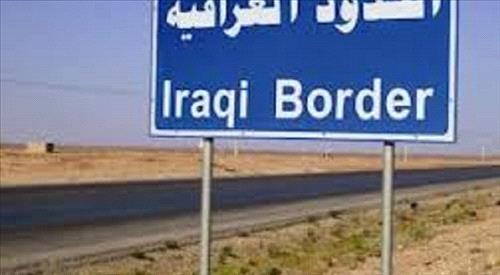Ammon News - AMMONNEWS - The Turaibil border crossing between Jordan and Iraq is expected to reopen in four months, after Iraq's Cabinet awarded a tender to a security company to guard the main highway connecting Baghdad to the crossing border, according to a top Iraqi diplomat.
"The Iraqi Cabinet awarded a contract to a security firm to secure the road connecting Baghdad to Turaibil. This is a major step towards reopening the crossing border," Safia Al Souhail, Iraq’s ambassador to Jordan, told The Jordan Times recently.
"After the reopening of the border, we expect trade exchange and commodities flow to return to their levels prior to the closure of the border," she said.
Iraq officially closed the Turaibil border crossing in mid-2015.
According to Iraqi officials, the reopening of the border might prompt Daesh to collect revenues on commercial trucking between the two countries.
The Turaibil border crossing connects Jordan to Iraq's Anbar province, which has been in a state of insurgency against the government since January 2014, and is home to pockets of Daesh, which has received several blows and lost control in much of the land it used to control to the Iraqi forces.
However, the terrorist group attacks border troops and other government targets from time to time.
The border closure has caused losses worth hundreds of millions for Jordanian industries and the land transport sector.
Baghdad, however, has agreed to offer a preferential treatment to Jordanian products through tax and fee exemptions.
The ambassador announced that a joint Jordanian-Iraqi committee was having discussions to determine which Jordanian commodities would be exempted from customs.
"We are keen on protecting the Iraqi industries and, at the same time, we are cooperating with Jordan to decide which items would be exempted from custom fees.
“We expect a clear decision and a list of exempted commodities by the time of the reopening of the border,” Al Souhail said.
There is also progress in the oil-gas pipeline project extending from Basra to Aqaba.
The diplomat said the Iraqi Cabinet had also awarded a tender to build part of the pipeline inside the Iraqi territories. Referring the tender is a “major step towards the implementation of this mega energy project that will benefit Iraq, Jordan and Egypt,” said the ambassador.
The Iraqi government estimates the total cost of the pipeline at around $15 billion, a project that international companies will implement on a build, operate, transfer basis, Petra added.
The project was originally envisioned as a 1,680km double pipeline that would pump 1 million barrels of oil per day, from Basra on the Arabian Gulf to Aqaba Port, and around 258 million cubic feet of gas.
It is expected to provide Jordan with 150,000 barrels of oil per day, with the rest being exported through Aqaba, generating an estimated $3 billion a year in revenues for the Kingdom.
